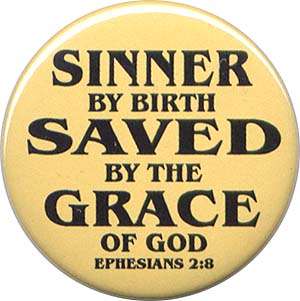"Christ takes upon Himself sin, the power which held the world captive under its grasp.
It is not a question of giving His life for specific people but of Christ taking upon Himself all of the evil of the world and defeating the powers which held man captive to sin, the world and the devil".
Jordan Cooper - The Great Divide.
Isn't it great when you can meet someone who really engages you with their passion about something - it can truly be contagious, and may even cause you to start to look at things with fresh eyes.
Around four years ago, I discovered the writings of Robert Farrar Capon (those of who have are probably already salivating!). Whilst he often left me provoked, astonished or troubled by some of what he said, he also continuously left me reveling in the sheer splendor and abundance of the richness of God's grace, because it is indeed the sweet wonder of the Gospel that truly makes us free.
I often find myself come 'back to the table', as it were, to savor those same writings, and I have found myself doing so this past week as a result of some studies into the great truths of justification re-discovered by Martin Luther. Let me unpack a little of this.
In his book, "Between Noon and Three", Robert really spreads out the nature of God's astonishing love to our broken world. Towards the end of the work, he has a chapter on the final judgement, starting with Revelation 6:9 and 10 - the cry of God's people to bring a final blow against evil. After glimpsing at Revelation 20, he then looks at Jesus' words about this in John chapters 5, 8 and 12, noting how the first event here is the raising of all the dead, and how judgement will be determined by the Lamb's book of life.
With this in mind, he returns to Jesus' own clarification of this event in John, that
1. The Father judges no one (John 5:22), because He has passed this to His Son.
2. The Son doesn't judge (12:47), because rejection itself judges us (vs 48).
3. Christ is drawing us to Himself (John 12:31,32), hence His work in us (Colossians 2:13 and 14).
4. This final work of judgement has already begun (John 12:31).
Having gained an overview, we can then focus on the day itself. Notice that all are raised. Why is that? Why would those who are damned not merely be sent straight to condemnation? This is where the issue of Justification is brought before us.
First of all, consider the Apostle Paul's words to Timothy:
"I urge that entreaties and prayers, petitions and thanksgivings be made on behalf of all men... this is good and acceptable in the sight of God our Saviour who desires all men to be saved and come to a knowledge of the truth. For there is one God, and one mediator between God and men, the man Christ Jesus, who gave Himself as a ransom for all" (1 Timothy 2:1-6).
The desire of God is for all men to share in the redemptive work of His beloved Son, and that being so, Christ gave Himself to ransom them.
Then, consider Paul's words in his letter to the Romans:
"Therefore, just as one man's sin lead to condemnation for all, so one man's act of righteousness leads to justification and life for all". (Romans 5:18).
Did you hear that?
The death and resurrection of Jesus Christ brings us all life and health and peace.
The scope, notes Albert Wolters, of God's work of Redemption, is entirely comparable to the scope of the impact of the invasion of sin.
On that final day, what counts is what is written in one particular book, written in accordance to what Jesus, the Lamb, tells us of this judgement - His Father does not judge, He does not judge, because He came to draw us, desiring all to be redeemed.
On the cross at Calvary, as John himself tells us, Jesus didn't just give Himself for our sins, but the sins of the whole world (1 John 2:2).
That is why all are raised. The work of Jesus Christ justifies (redeems) life, hence all of creation benefits directly from that work, both now, and on that last day.
So why, then, will there be those who spend eternity in a place that wasn't prepared for them?
The answer lies in point 2 above.
Look at the truth on this matter in John chapter 3-
God gave His Son that we might all (the world) live and be saved (Verses 16, 17).
If we trust in God's Son, we are saved, but if we reject Him, we are condemned - why - because judgement (separation from God) comes upon those who prefer darkness to light - those who love evil rather than the one who is truly love (Verses 18 and 19).
A similar point is made by Paul in Romans 1. God judges men now who reject Him and His work of liberation by giving them over to their own folly (1:24).
The consequences of what God has done for us in His only Son are truly extraordinary.
Through one act of righteousness, there has come about a justification (a total verification) of life to us all.
This is a truly profound thought.
We inhabit a world scarred by sin and stung by death, but the finished work of God in the giving of His Son to this world means these trials are passing, and that our Father wishes us and His works to truly, totally live once again.
The life of God, given to the world in His begotten Son, has certainly made us free (Galatians 5:1).
Martin Luther, writing in his treatise on freedom, notes that because of Christ, the good gifts of this world are for our benefit, and can be used well and truly enjoyed in everyday life, for such external things do not clothe us with righteousness or freedom, but are ours because of the righteousness in Christ alone. To preach this, he says, is to truly feed the soul and set men free.
Let us share such riches as we enjoy and share the beauty of God's creative work, care for each other, love one another, "speaking" of God's righteousness and love to our needy world.
Happy Reformation Day!
Subscribe to:
Post Comments (Atom)





No comments:
Post a Comment